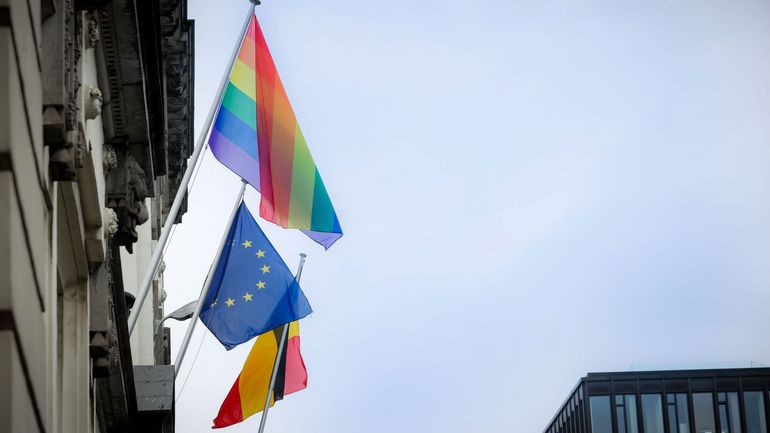Fourteen European Union member states have backed a joint statement, initiated by Belgian Minister of Foreign Affairs, Sophie Wilmès, condemning the LGBTQ+ legislation passed by the Hungarian Parliament.
All countries expressed their deep concern about the law passed exactly one week ago, prohibiting the "promotion" of homosexuality, which stated that no references can be made to LGBTQ+ people in places where minors are present.
"The new Hungarian legislation undermines the fundamental values of the Europe we stand for. Belgium immediately took the lead in raising the issue at today's European Affairs Council, together with our partners from the Benelux - traditional defenders of LGBTQ+ rights," said Wilmès.
"A union of values is not an à la carte menu. We have a collective responsibility to protect the rights of all EU citizens, and therefore we have a duty to make our voice heard and to react when those rights and our values are undermined," she added.
The joint statement argued that the amendments made by the Parliament discriminate against LGBTQ+ persons and violate the right to freedom of expression under the guise of protecting children.
In addition, the 14 countries emphasised that the legislation is "clearly in breach of the freedom of expression enshrined in the EU Charter of Fundamental Rights."
"People have the right to live the way they want. Surely we are no longer in the Middle Ages," said Luxembourg's Foreign Minister Jean Asselborn, who called on the European Commission to act to ensure respect for European laws and values.
Next steps
The Commission is currently investigating whether the law violates European legislation. If it finds it does, it can launch infringement procedures against a Member State that flout European laws, which can lead to a case at the European Court of Justice.
According to a press release from Wilmès, the amendments to a number of Hungarian laws (the Child Protection Act, the Corporate Advertising Act, the Media Act, the Family Protection Act and the Public Education Act) ban "the depiction and propagation of a gender identity other than sex at birth, gender reassignment and homosexuality for persons under 18 years of age."
Related News
Hungarian minister Peter Szijjarto said on Tuesday that this law belongs to the national competencies and that it "is not directed against any community in Hungary, but only against paedophiles."
"The law says nothing about the sexual orientation of adults. It only states that the sexual education of minors is the exclusive competence of the parents. That is all," he said.
Denmark, Estonia, Finland, France, Germany, Ireland, Italy, Lithuania, Luxembourg, the Netherlands, Spain, Sweden and Latvia have said they will back the declaration.
Supporters showing solidarity
The city of Munich's plan to light up its stadium in the rainbow colours in support of the LGBTQ+ community on Wednesday for the Germany-Hungary game in protest of the law has been rejected by the Union of European Football Associations (UEFA).
UEFA, which is a "politically and religiously neutral organisation", justified the veto, saying the "political context of this request is a message aimed at a decision taken by the Hungarian national parliament."

Credit: Piqsels
Hungary quickly hailed it as "a good decision", whilst France "regretted" the choice. Meanwhile, Germany, which considered the decision "bitter", has started planning several alternative actions of protest.
"The fans themselves should show rainbow flags in the stadium, and set an example of diversity and solidarity with LGBTQ+ people in Hungary and across Europe," Germany's European affairs minister Michael Roth said, according to reports from Belga news agency.
The organisers of the Munich Pride March, together with Amnesty International, plan to distribute 11,000 flags to spectators (only 14,000 seats will be occupied, due to Covid-19 restrictions).
During the Germany-Hungary match, other stadiums across Germany, including in Berlin, Frankfurt, Cologne, Augsburg and Wolfsburg, will be lit up in rainbow colours, whilst in Munich, the city will be decorating several buildings in the city with rainbow colours.
This story was updated on 23 June to include Italy on the list of EU Member States, as it decided to back the declaration following debates on the subject.

